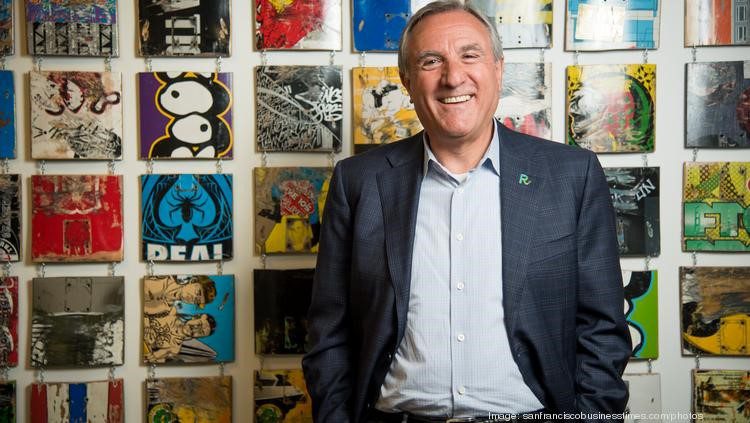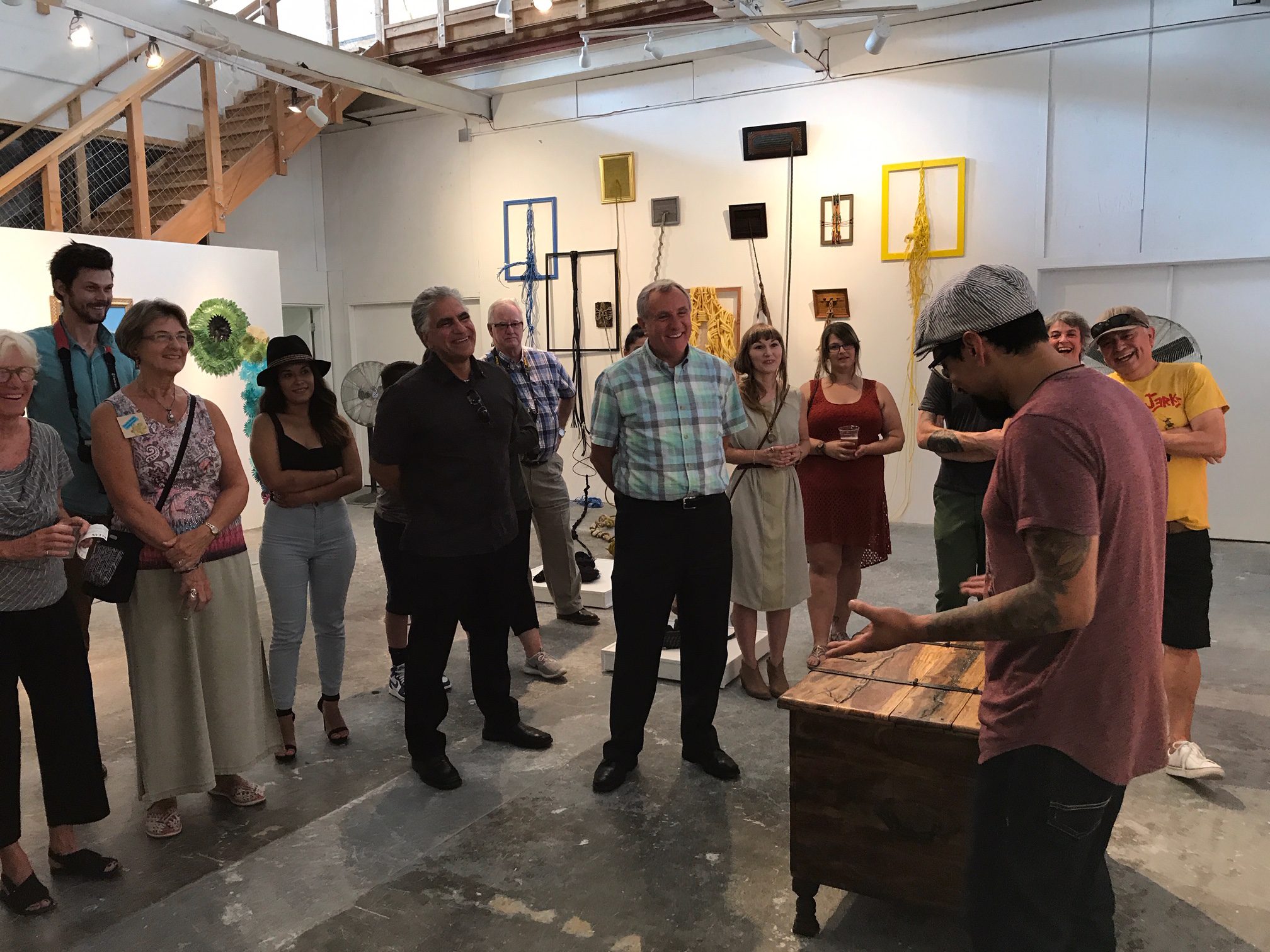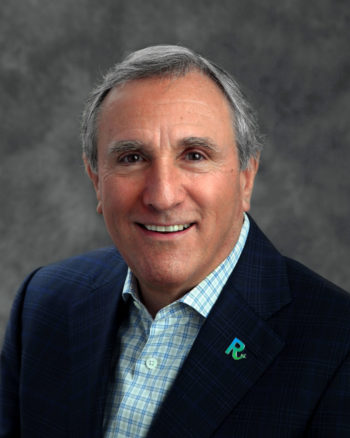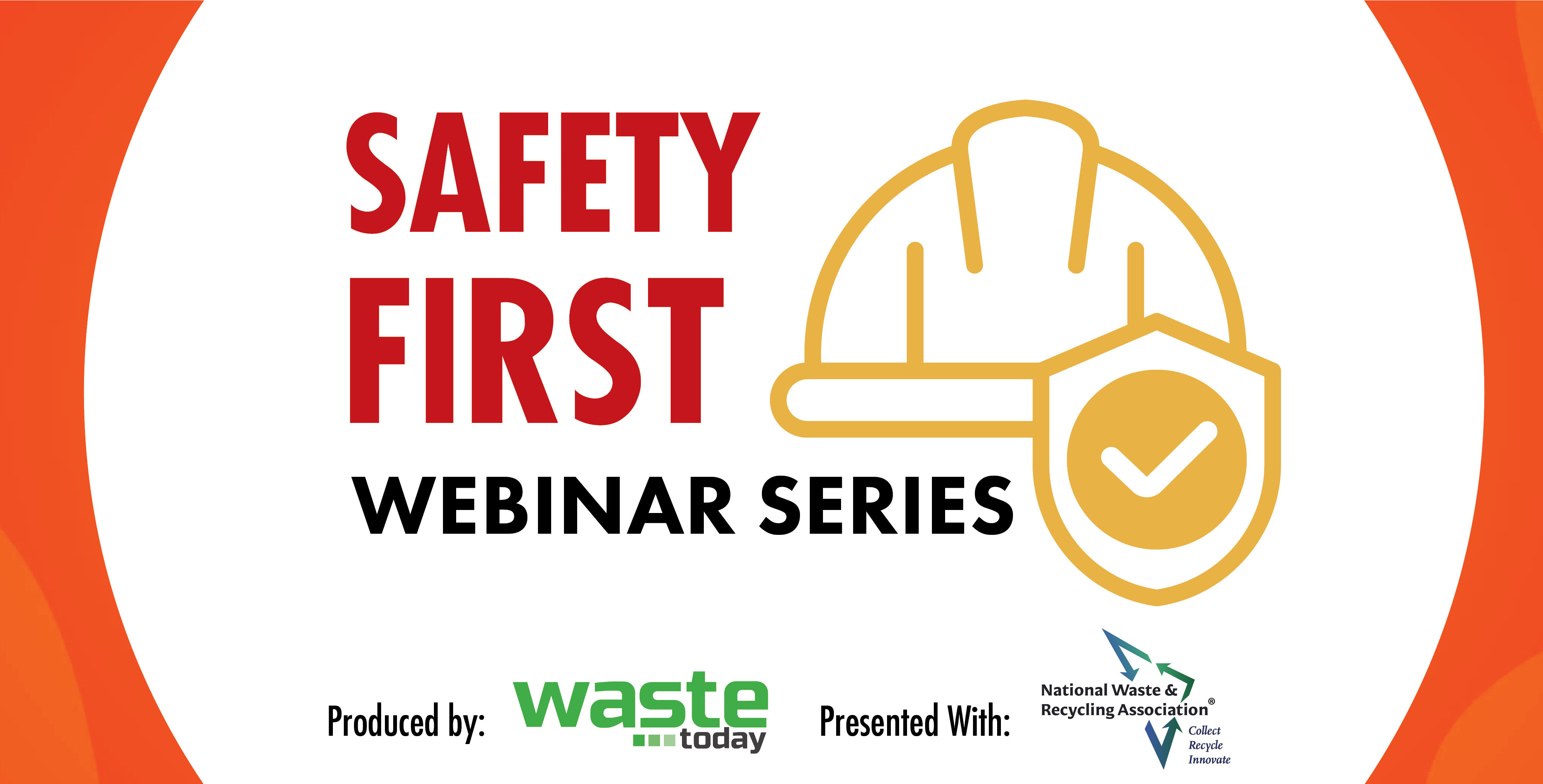NWRA Hall of Fame: Michael Sangiacomo
Mike Sangiacomo’s introduction to the waste and recycling industry came through his father, an Italian immigrant garbage collector who worked in San Francisco for 34 years. Sangiacomo’s grandfather and uncle also worked in the industry, tracing their family roots back to the Gold Rush era. During that time, many Italian immigrants came to the West Coast in search of opportunity, finding it through the collection and processing of salvageable materials. When Sangiacomo was 16 years old, he joined his father on route in San Francisco’s Chinatown. At the end of the shift, Sangiacomo made an announcement that he believed his father wanted to hear: He was going to college.
Sangiacomo earned a Bachelor of Science in business administration and a commission as a Second Lieutenant at the University of San Francisco and then briefly served in the Army Reserve before working at a public accounting firm for seven years and a rice milling and grain trading company for five years. He eventually made the transition to the waste and recycling sector as chief financial officer (CFO) for Envirocal (then parent of Sunset Scavenger Company) in 1983.
While in that role, Sangiacomo was introduced to some of his mentors who would go on to help shape his approach and leadership style. In addition to his father, who taught him how to work efficiently and about the value of community service, Sangiacomo worked closely with John Molinari, a retired court of appeals justice who instilled in him a sense of academic curiosity, and Welton Flynn, a public accountant in the state of California who, as a member of the company’s Board of Directors, helped him understand leadership as a unique opportunity to impact larger societal change.
After about five years as CFO for Envirocal, the company was purchased by Norcal Waste Systems, where it transformed into one of the nation’s largest 100 percent employee-owned companies, with a substantial minority representation among its shareholders and no employee owning more than 0.4 percent of the company.
Following the merger, Sangiacomo served as Sunset Scavenger’s general manager. In that role, he led the two-and-a-half-year implementation of San Francisco’s first curbside recycling program. The program leveraged single person, two-chamber, non-compacting side loader trucks for recycling, while municipal solid waste (MSW) collection employed two-person rear loader trucks. To improve this process, Sangiacomo introduced a single-person, split body, semi-automated side loader truck specifically designed for the company’s collection of both recycling and MSW.
Taking the company’s commitment to recovery a step further, Sangiacomo led an effort to add a third cart for the collection of organics, dubbing the larger program “the fantastic three.” This move marked the nation’s first large-scale curbside organics (compost) collection program and laid a foundation for further success using a three-cart system in San Francisco and beyond.

Sangiacomo was promoted to chief financial officer and then went on to serve as acting president and chief executive officer (CEO) in 1990.
“I officially became president and CEO in January 1991, and since then, I have been responsible for the leadership and growth of the company,” says Sangiacomo. “My role is to ensure these vital waste collection services are delivered to our communities and champion the company’s vision of ‘a world without waste.’”
In April 2009, in an effort to redefine and expand Norcal Waste Systems as a geographically diverse business focused on environmentalism, recycling and resource recovery, Sangiacomo officially rebranded the company to Recology. Under Sangiacomo’s leadership, Recology has expanded its operations to include more than 60 operating companies and facilities across California, Washington and Oregon and grown its annual revenue from $250 million in 1990 to $1.3 billion in 2019.
“It’s one of the achievements I’m most proud of, helping Recology grow to over a billion-dollar company under a model of employee ownership,” he says. “This success has allowed us to blur the line between customer and community, and allow wealth created through our business to stay local and grow a stronger economy for us all.”
A part of this success has included leading effective company programs like the Recology Academy, a nine-month program intended to help new managers gain a better understanding of the company and the industry at-large; the Recology Internship Program, designed to attract new talent to the industry; the Leadership and Beyond Program, which provides employees in management with additional educational and growth opportunities; the Recology Volunteer Program, a companywide effort to serve the communities where Recology employee owners work and live; and the Recology Artist in Residence Program, which provides artists with the space, resources and opportunity to create artwork out of discarded materials.

Over the years, Sangiacomo has also helped Recology develop a reputation as a leader in innovation, outfitting the company’s facilities with cutting-edge technologies that improve management and diversion capabilities of the ever-changing material stream and market conditions.
In 2002, for example, Recology opened Recycle Central, a 200,000-square-foot single stream materials recovery facility (MRF) located at Pier 96 in San Francisco. Recology also constructed a MRF to handle the city’s construction and demolition debris and built a compost facility to process the city’s organic waste, investments that have helped San Francisco become one of the greenest cities in the world when it comes to waste diversion.
Recently, Recology updated Recycle Central with state-of-the-art paper sorting technology to help produce commodities that meet the new quality standards set by global environmental policies. The company is also pioneering robotic technology to recover and recycle plastics.
Taking technology integration beyond its facilities, Recology recently partnered with longtime vendor New Way Trucks and Chinese manufacturer BYD (Build Your Dreams) to build two first-of-their-kind rear load electric collection vehicles for the Recology operation in Seattle.
Sangiacomo has also championed policy change within the historic waste and recycling industry, most recently as a signatory and primary backer of a California statewide ballot initiative aimed at reducing single-use plastics and improving domestic recovery opportunities for these materials. After submitting more than 870,000 voter signatures, the initiative is slated to appear on the next general election in California in November 2022.

These notable efforts, along with many others, have helped lead to Sangiacomo’s induction into the National Waste & Recycling Association’s (NWRA) Hall of Fame. Sangiacomo has been on the NWRA Board of Governors since 2014, and, over the years, he’s actively encouraged his employees to be involved with NWRA’s local chapters and committees.
“It’s really special to be recognized by an industry I have been part of for such a long time,” says Sangiacomo. “I have always endeavored to keep people, service and environment at the forefront of my decision making. I hope these principles continue to guide Recology and our historic industry.”


